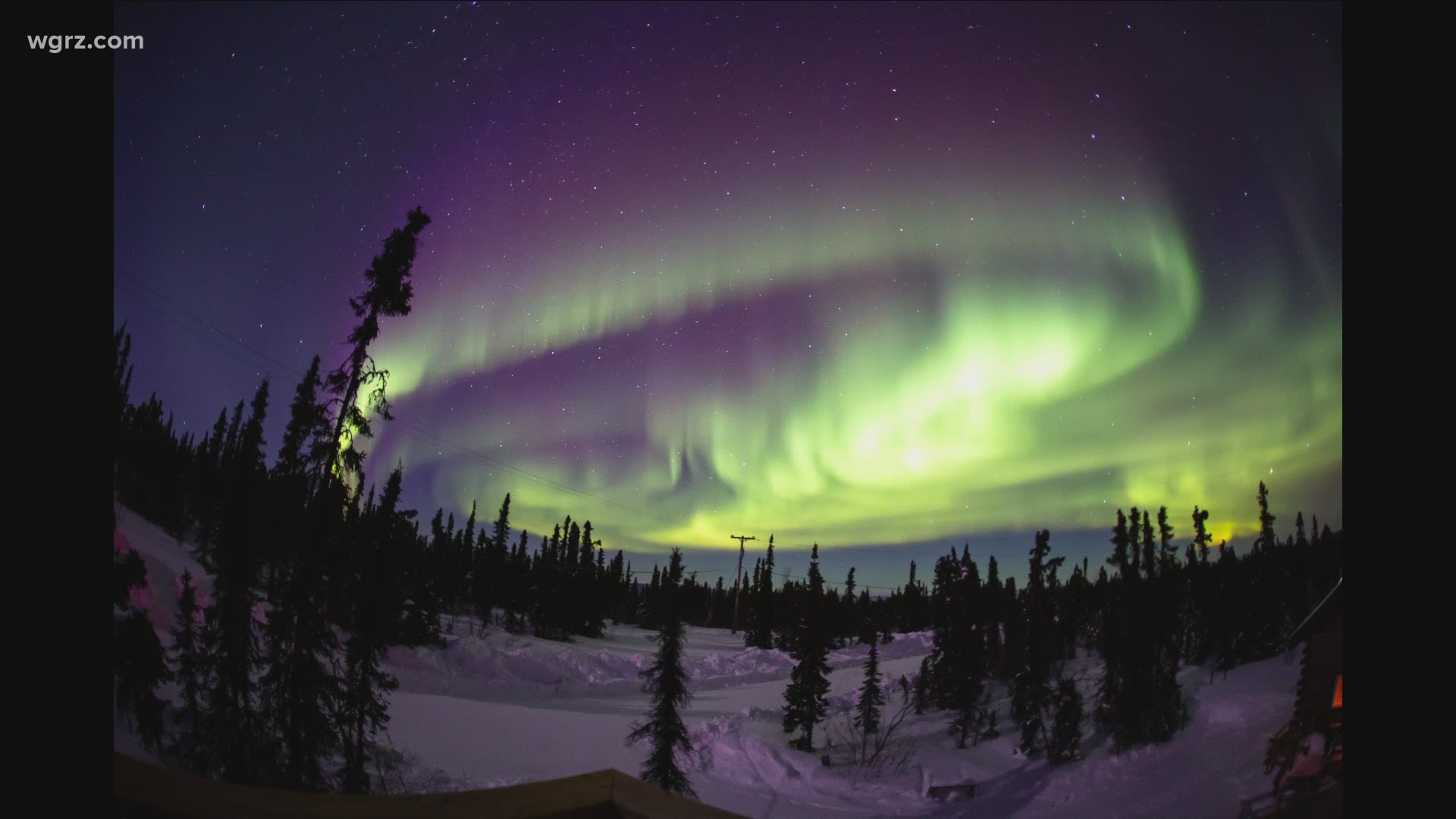BUFFALO, N.Y. — Note: the above video was posted on Dec. 10, 2020.
There's a chance to view the Northern Lights this weekend for parts of North America, but the weather could throw a wrench in viewing this fantastic light show in two days: cloud cover and frigid arctic conditions.
A strong solar flare and coronal mass ejection (CME) erupted from the sun Thursday, and with the Earth's orientation and rotation around the sun, this CME is expected to reach and impact the Northern Hemisphere this weekend.
The Space Weather Prediction Center (SWPC) on Thursday rated this event as a "G1" (minor) geomagnetic storm, meaning there could be potential implications on low orbit satellites, space craft, and communication systems around the North Pole on Saturday and Sunday. For comparison, this is two degrees less than the G3 geomagnetic storm that occurred in late October of 2021.
The visible result of this CME will be the Aurora Borealis, more commonly known as the northern lights. The SWPC projects that this particular event could allow for the northern lights to dip a little father south of the North Pole and be seen across southern Canada and the Upper Midwest. But northern Maine and Washington state could view this too. Fantastic viewing is expected across northern Canada and Alaska Saturday night. Buffalo is expected to be too far south this time and will miss out on the show.
However, the forecast could ruin the show for many with dangerously cold temperatures expected across much of the of North America and cloud cover in the west.
Here in in Buffalo, we're expecting temperatures in the single digits and wind chills below zero Saturday night and it's going to be even worse farther north in Ontario and the Northeast. But sky conditions will be pretty clear and cloud free, so brave photographers and live camera may be able to capture and/or stream this event.
To view the northern lights, you want to be in an area with minimal to no light pollution. Look north, a little above the horizon. It may take 20 minutes for your eyes to adjust to the darkness of the night sky, but in the distance you'll be able to see a faint green glow. That's the aurora borealis!
RELATED VIDEO:

